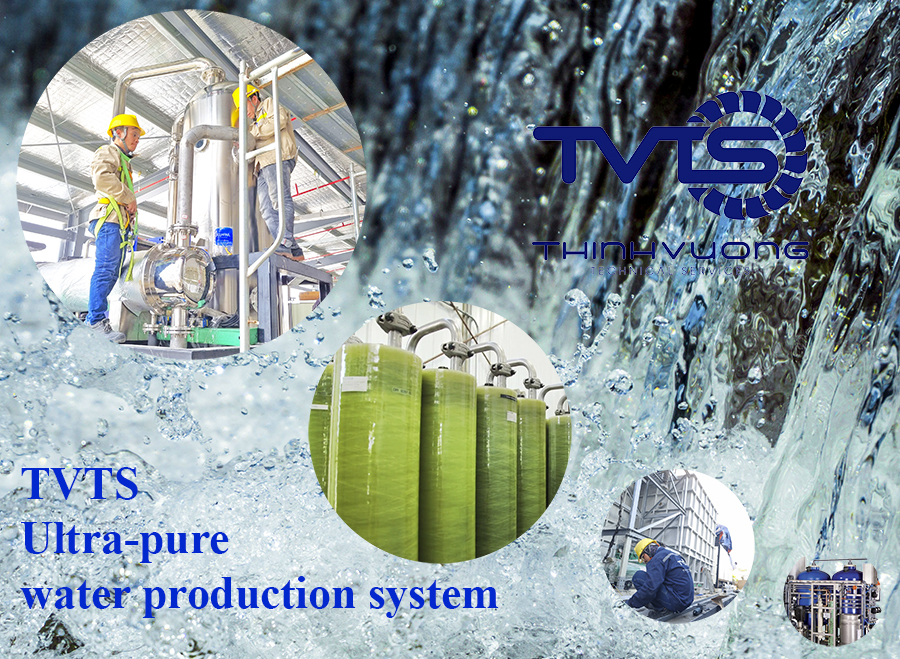| Solutions » Demineralized water treatment » Ultra-Pure Water Production System: A Key Solution for Modern Industries |
Nội dung
1. What is Ultra-Pure Water?
Ultra-Pure Water (UPW) is water that has been almost completely purified, removing nearly all impurities, including minerals, bacteria, ions, and organic substances. Depending on the level of purity, this water can be used in various industrial fields.
2. Purity Levels of Water
Water is classified based on its purity level according to the requirements of different industries:
- Pure Water: Used in pharmaceutical and food production.
- Ultra-Pure Water (UPW): Applied in the electronics, semiconductor, high-end pharmaceutical, and thermal power industries.
- Electronic Grade Water: Produced under extremely stringent standards for microchip and semiconductor manufacturing.
Below is the corresponding electrical conductivity of different purity levels of water:
| Water Grade | Conductivity (µS/cm) | Resistivity (MΩ·cm) |
|---|---|---|
| Standard Drinking Water | 200 – 800 | 0.005 – 0.00125 |
| Pure Water | 0.1 – 1.0 | 10 – 1 |
| Ultra-Pure Water (UPW) | 0.055 – 0.1 | 18.2 – 10 |
| Electronic Grade Water | ≤ 0.055 | ≥ 18.2 |
3. Applications of Ultra-Pure Water
Ultra-Pure Water is widely used in various industries:
- Electronics Industry: Used for cleaning microchips and circuit boards.
- Medical and Pharmaceutical Industry: Essential for drug manufacturing and injection solutions.
- Energy Industry: Provides ultra-clean water for boiler systems.
- Laboratories: Ensures precision in experimental results by eliminating impurities.
4. Ultra-Pure Water Filtration Technologies
Ultra-Pure Water filtration systems typically combine multiple advanced technologies:
- Reverse Osmosis (RO): Removes up to 99% of contaminants.
- Deionization (DI): Absorbs remaining mineral ions.
- Activated Carbon Filtration: Removes odors, colors, and organic compounds.
- UV or Ozone Sterilization: Eliminates bacteria and viruses.
- Industrial Deionization Water Treatment Technology.

5. Choosing a Supplier for Ultra-Pure Water Filtration Systems
Selecting a supplier for an Ultra-Pure Water production system directly impacts product quality. Key criteria when choosing a supplier include:
- Experience and Reputation: Companies with industry expertise ensure high-quality systems.
- Technology and Standards: The system must comply with international standards such as ASTM, USP, and ISO.
- After-Sales Services: Warranty, maintenance, and technical support are essential factors.
6. Pricing of Ultra-Pure Water Filtration Systems
The cost of Ultra-Pure Water filtration systems depends on several factors:
- Processing Capacity: Larger systems have higher costs.
- Technology Used: Advanced systems come with higher prices.
- Required Purity Level: The higher the purity, the greater the cost.
7. Conclusion
Ultra-Pure Water plays a crucial role in many industrial sectors. Businesses must thoroughly research technologies, applications, and suppliers before investing to ensure efficiency and cost savings.



